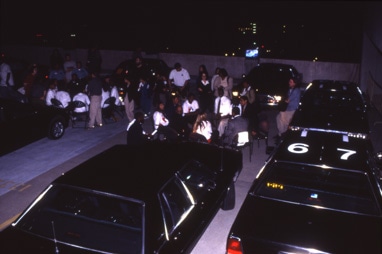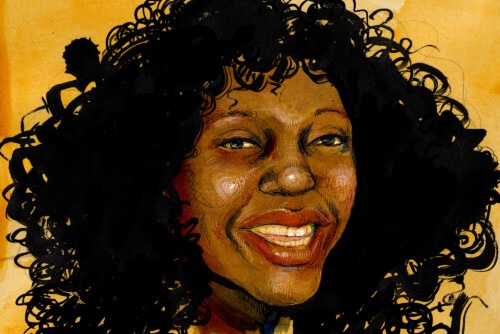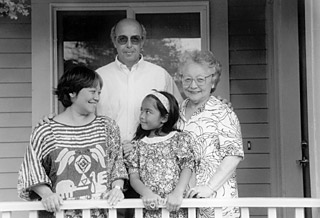We’re pleased to bring you the fifth issue of the Scholar & Feminist Online. As our guest editor, Barnard’s own Elizabeth A. Castelli, writes in her eloquent introduction, the essays and artwork presented here address the question, “what counts as violence?” “How does violence become visible and legible as violence?,” Elizabeth continues. “What are the conditions and rationalizations for violence? How do we count violence’s costs – and thereby, perhaps, help to identify the point at which it becomes too costly? What practical, critical, and imaginative resources are at our disposal for interrupting the impact of violence on individuals, communities, and the current world situation?”
Reverberations: On Violence grows out of two distinct but related events that took place at Barnard College during the 2002-2003 academic year. The first event was a colloquium, “Responding to Violence,” organized by Elizabeth and Janet Jakobsen, Director of the Center for Research on Women, in the weeks and months following September 11, 2001. Held in October 2002, the colloquium featured a plenary address by Nobel Peace Laureate, Jody Williams, and a day-long set of conversations among activists and academics organized around short papers that participants had written in response to pre-circulated questions. The essays by Williams, Karen Beckman (Assistant Professor of English and Film Studies at the University of Rochester), and Erin Runions (Assistant Professor of Theology at Saint Bonaventure University) that appear in Part I represent a sampling of the conversation from “Responding to Violence.” (For more, please visit the conference website. Later this year, Interventions: Activists and Academics Respond to Violence, an anthology of essays deriving from the colloquium, will be published by Palgrave Macmillan.)
The second event from which this issue took shape was the Center’s 28th annual conference, The Scholar and the Feminist, held in February 2003. The conference was devoted to the theme, “Why? Feminist Analyses of the State of the World,” and picked up on many of the themes of the “Responding to Violence” colloquium. Many of the presentations explored the amplification of imperialist impulses in U.S. foreign policy in the wake of September 11. Part II of this issue presents essays written by participants of that conference. Here, you’ll find Neta Crawford, Principal Investigator of the Global Ethics Project at the Watson Institute at Brown University, taking on “U.S. Foreign Policy Post-September 11.” Lois Ann Lorentzen, Professor of Social Ethics at the University of San Francisco, shares her thoughts on “Feminists and Forward Command Posts,” while Meredeth Turshen, a professor in the Edward J. Bloustein School of Planning and Public Policy at Rutgers University, writes about “The Politics of Oil in Africa.” Lisa Duggan, Professor of American Studies and History at New York University, sounds off on “Neoliberalism Versus Global Feminism: Crisis and Opportunity,” and Elizabeth A. Castelli offers her report on a panel featuring longstanding activists Cheri Honkala, Winona LaDuke, Kate Rhee, and Daphne Wysham.
Complementing the essays is an art gallery curated by Web Designer Hope Dector. The gallery brings together work “On Violence” by seven visual artists: Ida Applebroog, Gaye Chan, Sue Coe, Lisa Kahane, Suzanne Lacy, Dread Scott, and Emna Zghal. The exhibit includes websites, slideshows, and animated images based on over 115 original paintings drawings, prints, photographs and installation projects. Hope brings considerable skill, technological savvy, and artistic creativity to this innovative visual forum – the first such gallery to appear in the Scholar & Feminist Online. We’d like to thank her for making this truly multimedia issue a reality.
We hope you enjoy the issue. As always, we welcome your feedback.



